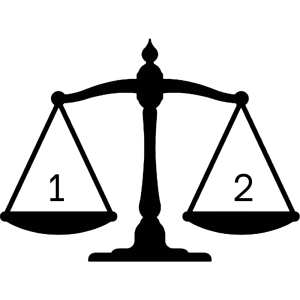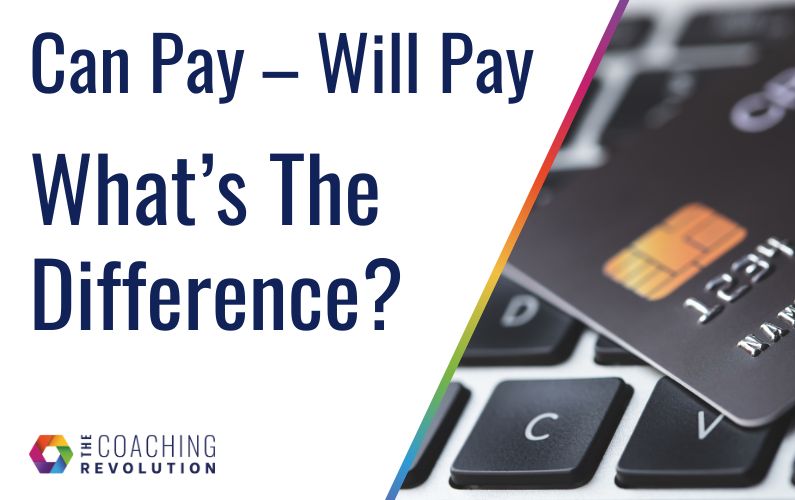Credibility As A Coach
But she spluttered indignantly I have an executive coaching qualification! She didn’t have it in her hand, but if she had, she’d have probably been waving it at me.
I have this difficult conversation so often.
I speak to coaches who have completed an ‘executive’ coaching qualification and they tell me their ideal client resides in the C-Suite. The reason they give is that C-Suite will pay £500 a session for coaching, which are the fees they have been led to believe they will command post-qualification. (Actually, now I’ve written that, I may be being unfair. It may be that they weren’t led to believe it, they just assumed it. Whichever it is, it’s usually untrue.)
From the perspective of the coaching profession, having a qualification is both important and essential. As you may be aware, we only work with qualified coaches (or those taking a qualification) and this is one of our non-negotiables. Qualifications matter.
However, there is a big difference between holding a coaching qualification and the professional credibility that brings and having credibility with a particular kind of potential client. The sad truth is that potential clients don’t really care about which flavour of qualification you hold.
Credibility To Potential Clients
Your background and/or experience and knowledge is where your credibility to a particular kind of client comes from.
But it’s not about me and my experience! I can feel you thinking. It’s all about the client! I can coach anyone!
I hear you and it’s true, you can coach anyone. But, and here’s the rub, not everyone is going to see you as a good fit for them, they won’t see you as their ideal coach.
This is partly because the vast majority of potential clients don’t give a hoot about your qualification(s), they only care about what’s in it for them. I did a quick poll amongst our mentors and not one of them has been asked about their qualifications ever. Not ever. I include Liz O’Neill’s response in that poll – whose clients are all corporate clients.
The reason that our mentors are all so successful is that they are very credible to the clients they serve. That credibility isn’t based on their coaching qualification – not at all – it’s based on three things:
- their understanding of the clients’ situation
- their ability to articulate this understanding
- their clients’ belief that they are their ideal coach, because they feel understood
Two Sides To A Business
See the picture below? It represents the balance of skillsets required to build a coaching business. The reason that the image is a weighing scale is that there are two distinct skills required and they are of equal importance.
The first of these is your delivery skills. These are the skills that you use when you’re sitting in front of your client(s). Every single coaching qualification, practitioner certificate, facilitation qualification – all of it – sits on this one side of the scale. These are the skills that coaches gather passionately. They are the skills that coaches feel will give them credibility as a coach. They do give credibility of course, but – and this is important – only within the coaching profession.

On the other side of the scale – marked 2 – sits a completely different set of skills. These are the skills required to create the opportunities to do the delivery.
These skills are of equal importance to the delivery skills, for without these, little or no delivery happens. Certainly, very little delivery happens that commands a professional fee.
So what are these skills?
They’re marketing and selling. Without being skilled in both marketing and selling, a coach won’t be able to build a financially viable coaching business.
In marketing, we choose a target audience with whom we have credibility. It may be that we have lived experience of the situation of this group of people, or that we have worked within this demographic group. It may be that we know a lot about the particular challenges faced by the target audience from having seen it, although not experienced it. What’s important, however, is that we understand the challenges faced by our target audience, challenges that coaching can help resolve.
The reason we need to understand these challenges is that good marketing involves articulating this understanding. It involves joining in the conversation that’s already going on inside the head of the people within that target audience. In particular, the ‘hamster wheel’ of a conversation that has no real solution in the moment and which coaching is so good at resolving. Another way of talking about the hamster wheel is to say spaghetti thinking, the scrambled mind that coaching is so good at unscrambling.
(I feel it important to add here that if you happen to be the owner of a ‘little black book’ of contacts from your stellar corporate career, contacts with whom you already have credibility and authority, then you may be able to get by with few skills on this side of your business. You may be able to build a business by honing just your networking skills. If this describes you, be aware that you are very privileged. Most coaches do not own this book of contacts.)
Can Pay -v- Will Pay
To go back to our executive coach. The woman in question came from the public sector and had reached middle management in her career. She couldn’t see why the fact that she’d no experience in the corporate sector, and had never coached anyone from C-Suite, should hold her back from being the perfect coach for that kind of client.
She didn’t see that her lack of understanding of the situation that anyone working in the C-Suite might find themselves in mattered at all. Also, she couldn’t see why not having a clue what they were struggling with mattered either. For her, it was all about the certificate – the same certificate that those elusive C-Suite coaching clients don’t care about – the fact that C-Suite executives can pay a high fee for coaching, and that she can coach anyone.
Here’s the thing. Just because someone CAN pay for coaching, doesn’t mean that they WILL pay.
‘Can pay’ means having the available funds to pay. ‘Will pay’ means having a reason to pay. Without that reason, ‘can pays’ do not turn into ‘will pays’.
What Does This Mean For Coaches?
What this difference means – the difference between can and will pay – is that coaches need to develop their marketing and selling skills with the same amount of time, energy, motivation and money as they did their coaching skills.
We all know one or two (or more!) ‘qualification collectors’. Those individuals who take more and more qualifications in order to build their credibility and confidence. The thought process goes like this:
If I take XYZ qualification too, then I’ll be able to offer even more value to my clients!
The truth is that it’s very difficult to provide value to clients you don’t have!
Building a Coaching Business
If you’d like some support with building your coaching business, why don’t you join our free community over on Facebook. See you there!

Recent Comments